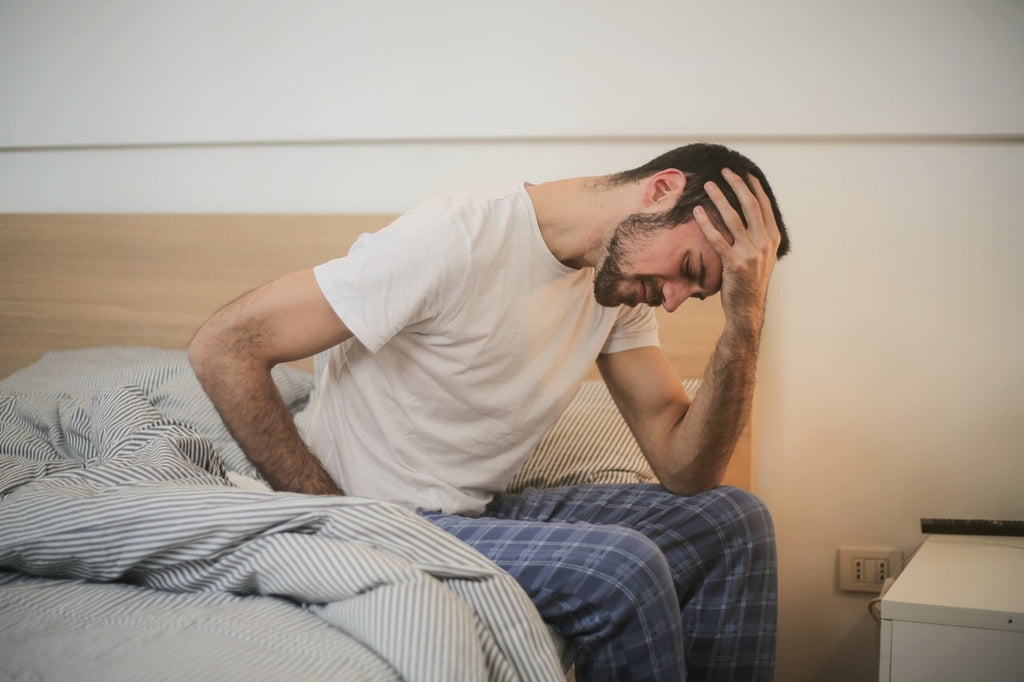Diseases have tormented humans throughout history. Stomach ulcers, colon cancer, appendicitis, and liver cirrhosis were all first accurately described in the 18th century. As a result, it's rather difficult to determine which diseases our ancestors contracted and died of.
However, one category of disease is different: hemorrhoids. Hemorrhoids and other anus problems have been described fairly precisely from as far back as ancient times.
The reason for it being so well-described is that these diseases were widespread, clearly visible, and accompanied by relatively simple symptoms such as pain and bleeding. Nonetheless, throughout the years, understanding of their origin and treatment has evolved. There are several theories on why you get them and how to get rid of them, but there is still no agreement on the best treatment.
What Are Hemorrhoids?
Hemorrhoids (HEM-uh-roids), often referred to as piles, are swollen, bulging veins that develop inside and outside the anus and rectum, causing discomfort. They can occur inside the rectum (Internal Hemorrhoids) or under the skin around the anus (External Hemorrhoids). The condition is widespread in men and women, affecting around half of the population by 50. They are typically connected with prolonged toilet use and straining during bowel movements.
Why Do Hemorrhoids Itch?
External hemorrhoids are more common than internal hemorrhoids. External hemorrhoids occur under the skin near the anus, and internal hemorrhoids occur inside the rectum. Occasionally, straining while using the restroom forces an internal hemorrhoid to protrude through the anus. This is referred to as a prolapsed internal hemorrhoid.
When an internal hemorrhoid prolapses, it produces mucus in the sensitive tissue around the anus, causing irritation. If the hemorrhoid remains prolapsed, mucus production and irritation will continue. The irritation might worsen if waste and mucus combine, causing more irritation.
How to Stop Hemorrhoids from Itching
Your anal itch, or what medical specialists call pruritus ani, is a symptom, not a diagnosis. It is difficult to ignore because of the constant urge to scratch. You may turn to the internet to find a cure or medication to alleviate your pain—but remember, the first step is to identify the root cause. Though it may be temporary, here are some remedies to try if the condition worsens.
Take Warm Baths with Epsom Salt
A warm bath with 1/2 cup of Epsom salt is a tried-and-tested home cure for alleviating anal itchiness or irritation and reducing the symptoms of hemorrhoids. If possible, use a sitz bath—a little plastic bucket that sits on the toilet seat and allows you to soak the infected area in water. Take a bath for over 15-20 minutes after each bowel movement to alleviate the discomfort and reduce the pain. Additionally, soak a soft clean cloth in warm water and place it against the anus in the same area where the hemorrhoid is formed for up to 15 minutes to relieve the pain.
Numb the Area with Cold Compress
A cold compress may also be used as an alternative. This approach is quite similar to the warm compress method, except that you use an ice pack instead of a warm towel. As with the warm compress, this may be used multiple times a day to help minimize hemorrhoid swelling and discomfort. Shortly afterward, applying a warm compress might help alleviate hemorrhoids itching even more effectively.
Make an Oil Treatment
Another common method of treating hemorrhoid itching is using essential oils. Oil treatments are simple to prepare - combine two to four drops of essential oil with two fluid ounces of base oil (almond, castor, or other suitable oil) and apply the final mixture directly on hemorrhoids. Use tea tree oil (antiseptic and anti-inflammatory) or other essential oils such as lavender, cypress, or avocado oil to treat itchiness.
Get Over-the-Counter Protectants
If home therapies are ineffective in relieving your hemorrhoid itch, a doctor may recommend a protectant to cover the irritated area from the stool during bowel movements. Using products such as Sensi Care, Hydraguard, A&D Ointment, Desitin, and Calmoseptine may be beneficial since they create barriers between the passing stool and the hemorrhoid-affected area.
Use Itch-Relieving Creams and Lotions
There are a variety of medicinal lotions and creams available on the market to help relieve itching. For example, Aloe Vera or Preparation H gel may significantly alleviate the discomfort and irritation associated with hemorrhoids and can be applied numerous times a day to the affected area. If you have body acne, avoid using any gels or lotions that include steroids.
Keep the Area Clean and Dry
Hemorrhoids cause itching thus, keeping the rectal and anal areas clean and dry is the most effective remedy to alleviate the discomfort. Moisture around the delicate area may cause irritation around external or prolapsed hemorrhoids, multiplying the chance of having more severe issues, such as bleeding. The irritation will be significantly reduced when the affected area is kept clean and dry using unscented, chemical-free products.
Other Causes of Pruritus Ani (Anal Itching)
Anal itching, also known as pruritus ani, may be triggered by various conditions other than hemorrhoids. Other possible causes of anal irritation include anal fissures, scabies, herpes, sweat buildup, yeast infection, proctitis, genital warts, stool leakage, pinworm infection, hookworm infection, ringworm, body lice, psoriasis, and in some cases, cancer.
Final Thoughts
Hemorrhoids are one of the most common conditions that affect people all over the globe. We have known about them for thousands of years, and the literature comprises many publications that discuss their causes and treatment options in detail.
Treatment options in modern medicine include around twenty medical and surgical procedures. You can treat the itch yourself; however, if it becomes persistent, you should consult with your doctor about treating the underlying cause of the problem.

